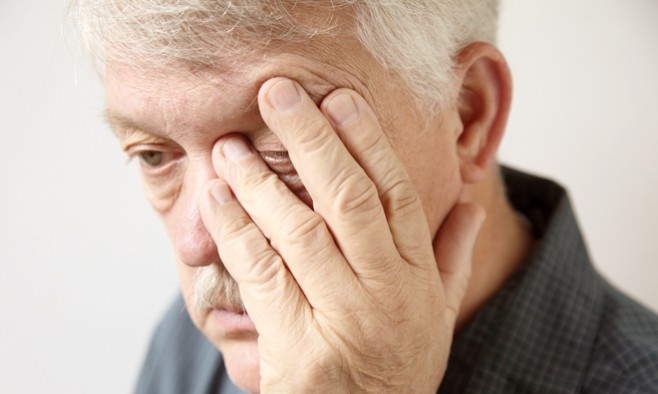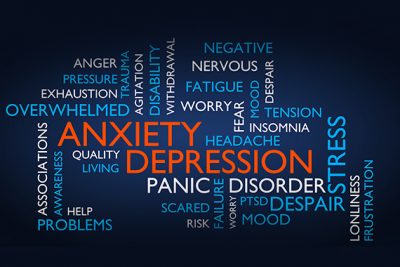Fatigue and Parkinson’s

What is fatigue
Do you often feel physically or mentally exhausted? If so, this could be fatigue.
Fatigue is different from sleepiness. A person who is fatigued feels exhausted all the time despite having a good night’s sleep. It can be very debilitating.
Fatigue is common early in the course of PD but can occur at any point and can happen whether movement symptoms are mild or severe. It is sometimes confused with other symptoms that can make a person sleepy or tired, like sleep disturbances or pain. Fatigue can also be linked to depression. With depression there is usually also fatigue, as well as loss of motivation, a general lack of interest and difficulty in sleeping. It is important that these symptoms are recognised as they are very treatable and overcoming them can reduce fatigue. Due to the overlapping of fatigue and depression, it has led to many people going undiagnosed or misdiagnosed. It is worth noting that stress can make fatigue worse.
Signs of fatigue
Fatigue can be defined as an unpleasant sensation of lacking energy, making the performance of routine activities, physical or mental a strain. People with PD may experience physical fatigue, mental fatigue, or both. Fatigue in PD is not the same as the feeling you might get at the end of a hard day’s work. It is not necessarily something that goes away with rest.
Each person’s experience of fatigue will be different; some cope well with it whilst others find it quite disabling. Fatigue can occur at any time, fluctuating in severity from day to day and even hour to hour. There is no correlation between fatigue and the severity of Parkinson’s, or how long a person has had the condition. People who are newly diagnosed are just as likely to experience fatigue as someone who has had Parkinson’s for a long time, and the severity may be the same in both cases. Fatigue may result in memory disturbances or cognitive difficulties which fluctuate.
In some cases, Parkinson’s medication may be a factor, for example dopaminergic medications may affect sleep and so add to fatigue. Dosage and timing of medication may also affect energy levels.
How Can Fatigue be Treated?
The extreme exhaustion that comes with fatigue can lead people to reduce hours at work or retire, or avoid social activities. Understanding fatigue as a symptom of PD and finding ways to cope with it are essential to maintaining a good quality of life.
1- Recognise your limitations, identify the priorities of the day and get to know your energy reserves.
- Plan your major activities in advance and ensure that you have time for recovery afterwards. For instance, if you have a big social event, rest more in the days leading up to the event and also plan to have a few restful days afterwards.
- if you work, talk with your employer to see if you can take regular short breaks, even if it’s only to make a drink or talk with colleagues
2- Diet and exercise:
- Eating a balanced diet can address many of underlying health issues, some people find small but frequent snacks improve energy levels. A balanced diet also helps if constipation is a problem. People with Parkinson’s have problems with constipation, it can make you feel lethargic so it’s important to treat bowel problems.
- Stay hydrated by drinking sufficient water throughout the day. You should be drinking around 2 litres per day.
- It is important to stay away from inflammatory foods which will make fatigue worse. Inflammatory foods include refined flour (white flour- based products), fried foods, sugar and processed meats. Opt for anti-inflammatory foods such as omega-3 fats, olive oil, fatty fish such as salmon, mackerel, tuna and sardines, green leafy vegetables, blueberries, oranges and nuts such as almonds and walnuts. This is practically the Mediterranean Diet. Following this diet is the best diet will provide you with many benefits. Other great anti-inflammatory foods include raw oats, ginger, green tea, red peppers, turmeric, beets, tomatoes, garlic, eggs and whole grains.
- A nutritionist can provide expert advice and support to help you make safe and effective changes to your diet and lifestyle in order to combat fatigue. They will carry out an assessment of your needs and will explore the causes of tiredness in your life that may benefit from nutritional support. From here, you will be given a tailored diet plan outlining all the ways you can introduce foods that give you energy into your diet.A nutritionist can also offer a number of functional tests which may also give an indication to issues driving your fatigue. These include: Nutrient Testing, Gastrointestinal Testing, Adrenal Testing, Chronic Infection Testing, Thyroid Testing and Genetic Testing.
- It can be extremely hard to think about exercise let alone do it whilst suffering from fatigue.However, it is extremely important to do continue to be active, even if for a short period of time. Exercise stimulates the release of hormones called endorphins. These hormones have a number of physiological functions, including helping to make us feel happy. In fact, they have a similar effect to morphine. Once you start exercising, that good feeling will give you the motivation to exercise again to get the same rush of endorphins. Build up stamina slowly, you are more likely to stick to a regime that is sensible and steady. Subscribe to our YouTube Channel which contains lots of different exercise videos to get you started.
- Mental exercise is also important so keep hobbies, interests and skills going so that your brain also keeps fit. Art, music and mindfulness all fall into this category. Find out more about our PDTogether Groups which focus on Holistic Health and Wellness.
3- Sleep and rest:
- Keep to strict sleep hygiene principles, that is a regular bedtime, regular hours of sleep and avoid day-time napping. If you must nap, try to keep it under an hour.
- Caffeine and tobacco are stimulants and should be avoided in the evenings as they can interfere with sleep. You should avoid excessive alcohol but social amounts of alcohol can act as a relaxant.
- You may find you feel fatigued after a large lunch. If so, try having a smaller, lighter meal at lunchtime.
4- General wellbeing:
- Incorporate time for relaxation into your daily routine and try to manage stress and anxiety as these can affect fatigue. Formal relaxation training can help, as may activities such as Yoga, Mindfulness Yoga, light massage, aromatherapy, long baths, light reading, relaxation tapes etc.
Maintain as many of your interests as possible – this helps with morale and wellbeing, which can help with alleviating fatigue.
Remember that fatigue won’t disappear overnight but with time and a considered approach you should be able to recognise your limitations and manage it more effectively. As a charity that champions holistic health, we always recommend getting to the root cause of illness instead of merely masking symptoms. Therefore treating the mind and body will help you to improve your quality of life.
5- Supplements
There are many supplements that can help with fatigue and boost overall energy. Always consult with your doctor if you are taking medications before starting new supplements.
Some supplements include:
- Ashwagandha
- High Strength B12 Vitamin Complex
- Rhodiola Rosea
- Coenzyme Q10
- Vitamin D3
- Magnesium




